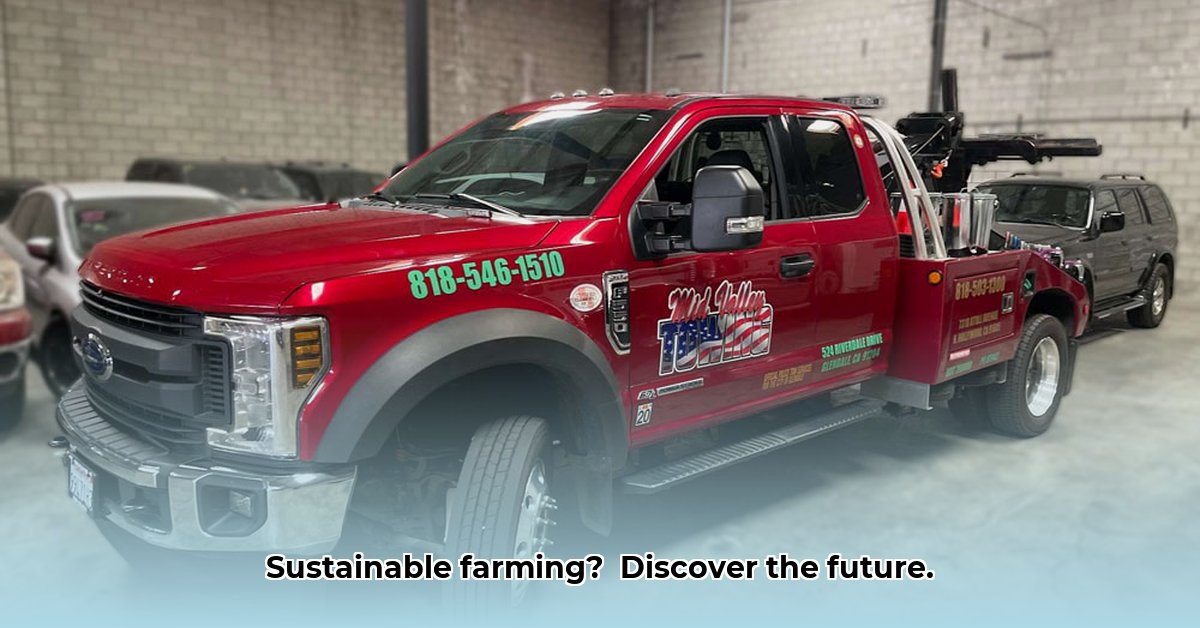
Mid-Valley Tractor Co. plays a significant role in the agricultural machinery market, offering a wide range of equipment for farms of all sizes. This case study examines their equipment's contribution to sustainable agriculture, highlighting both achievements and areas needing improvement. We'll explore their offerings, analyze their potential environmental impact (and the data gaps), and offer recommendations for a more sustainable future. For example, see this compact tractor mower for efficient grass cutting.
Mid-Valley Tractor Co.'s Equipment Lineup
Mid-Valley Tractor Co. provides a comprehensive inventory catering to diverse farming needs. Their offerings include reliable Kubota tractors, versatile loaders for efficient material handling, and rugged utility vehicles suitable for various terrains. A wide selection of implements—from tillers and planters to hay balers and sprayers—allows for customized equipment selection based on specific crops and farming practices. This breadth of options is a significant advantage for farmers seeking a single source for their machinery needs.
The Sustainability Imperative: Beyond Equipment Selection
While Mid-Valley's equipment selection is extensive, a critical element is missing: readily available data on their machinery's environmental impact. Simply offering equipment capable of supporting sustainable practices is insufficient; demonstrating its active contribution to sustainability is paramount. Key questions remain unanswered: How fuel-efficient are their tractors compared to competitors? What are their greenhouse gas emissions? What are their end-of-life management practices (recycling programs, etc.)? Addressing these questions is vital for a complete assessment.
Transparency: A Foundation for Sustainable Farming
The absence of readily available environmental data hinders informed decision-making for farmers. Transparency is crucial. Farmers need clear, accessible information on fuel consumption, emissions, and the overall environmental footprint of their machinery. This necessitates Mid-Valley Tractor Co. to provide comprehensive lifecycle assessments (LCAs) (a detailed analysis of a product's environmental impact across its entire life cycle) for all major equipment lines, covering manufacturing processes to end-of-life disposal options. This builds trust and empowers farmers to make responsible choices.
Recommendations: Actionable Steps for a Greener Future
To enhance Mid-Valley's sustainability profile and promote broader agricultural sustainability, several steps are recommended:
For Mid-Valley Tractor Co.:
- Publish Comprehensive LCAs: Publicly release detailed LCAs for all major equipment lines, demonstrating transparency and enabling informed consumer choices.
- Implement Regular Sustainability Reporting: Publish annual sustainability reports detailing progress toward environmental goals, targets, and implemented actions. Increased accountability promotes ongoing improvement.
- Market Eco-Friendly Features: Effectively communicate the sustainable features of their equipment (e.g., fuel efficiency improvements or use of recycled materials). Clear marketing builds a stronger brand image and informs consumer purchasing decisions.
- Invest in R&D: Support the development of technologies that reduce the environmental footprint of farm machinery. This could include exploring alternative fuels, improving engine efficiency, and designing more energy-efficient implements.
For Farmers:
- Prioritize Fuel Efficiency: Choose equipment with demonstrably low fuel consumption and reduced emissions to directly minimize environmental impact.
- Utilize Precision Agriculture: Implement precision farming techniques (GPS-guided planting, variable-rate application) to optimize resource use and reduce waste, improving efficiency and decreasing environmental impact.
- Explore Alternative Fuels: Investigate the feasibility of alternative fuels (biodiesel or electric power) while considering practical limitations and economic viability.
For Policymakers:
- Incentivize Sustainable Practices: Provide financial incentives (tax breaks, subsidies) to encourage adoption of energy-efficient and environmentally friendly farming equipment.
- Enforce Stricter Emission Standards: Implement and strictly enforce stricter emission standards for agricultural machinery, stimulating innovation and reducing environmental burden.
- Fund Responsible Disposal Programs: Establish and fund programs for responsible recycling and disposal of old agricultural equipment, minimizing landfill waste and promoting resource recovery.
For Consumers:
- Demand Transparency: Insist on clear and accessible information about the environmental impact of agricultural equipment. Consumer demand drives industry changes.
- Support Sustainable Businesses: Actively support businesses committed to environmental responsibility and sustainable practices. Consumer choices significantly influence industry behavior.
Conclusion: Collaboration for Sustainable Agriculture
A sustainable agricultural system requires collaboration. Mid-Valley Tractor Co., farmers, policymakers, and consumers all have a role in building a more environmentally responsible future for farming. Open communication, data-driven decision-making, and a continuous commitment to improvement are crucial for progress. The focus should be on how equipment contributes to a healthier planet, not just what equipment is used. The question, "How can agricultural equipment contribute to environmental sustainability?" needs to be a central theme in the industry's future.